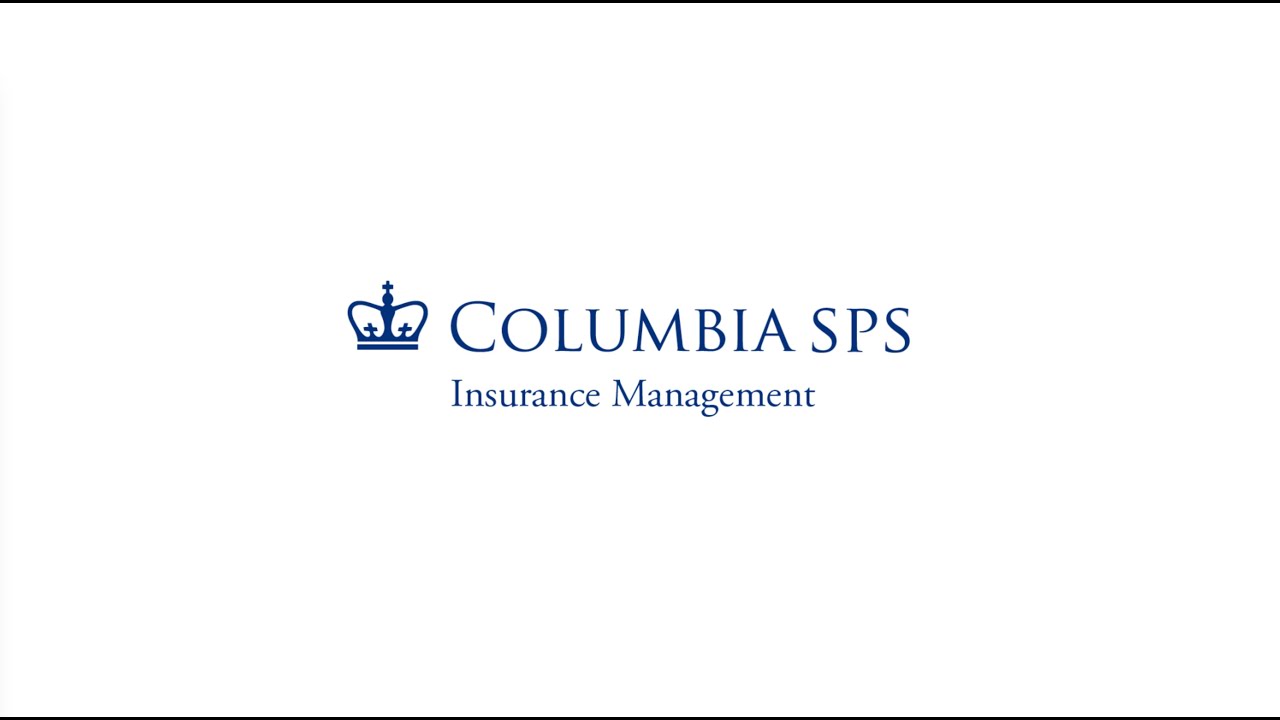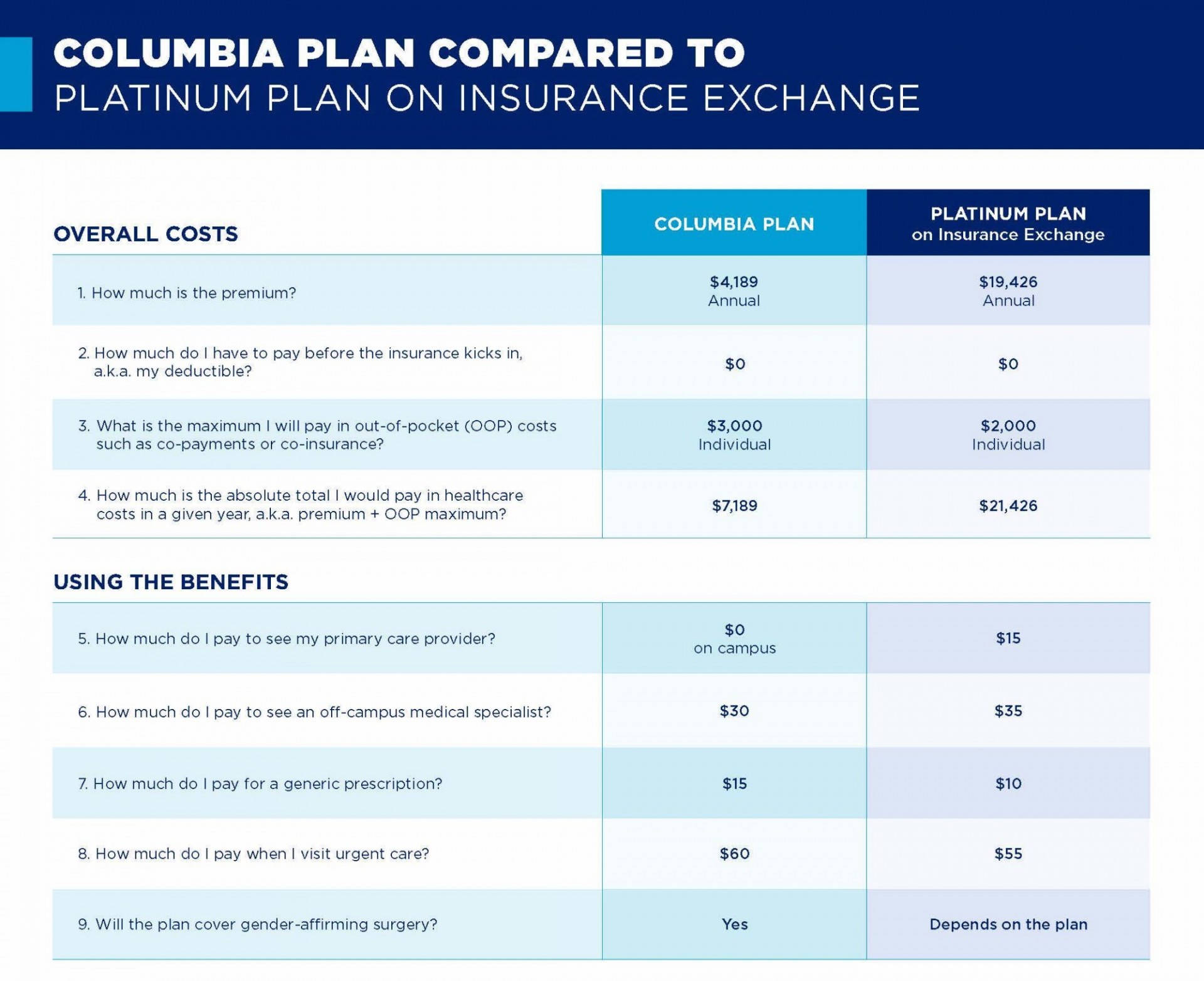
Through this program, students may generate new ideas. They can expand their professional networks. They are instructed and advised by a group of well-known business experts.
Graduates of columbia university insurance management are prepared for leadership positions in insurance agencies, brokerages, consulting firms, and insurance companies.
This 16-month part-time program mixes flexible peer and professor engagement with asynchronous online training. Due to the concrete problem-based learning framework, students are prepared to use what they learned today in the workplace tomorrow.
As a student, you may connect with academic and professional networks and secure the future of insurance through Columbia University’s Insurance Management master’s degree.

Tuition fees for the Insurance management course
The Board of Trustees approves tuition and fees each spring and may fluctuate yearly. Students are required to buy their textbooks and other course materials. For the summer, fall, and spring semesters of 2022, you must pay $1784 per credit.
Minimum Requirements to apply for MPS in Insurance Management
- A bachelor’s degree or equivalent with a minimum GPA of 3.0 from college and graduate school
- Strong written and oral communication skills
- Students must be comfortable speaking English.
- Minimum TOEFL score of 100 (600 paper-based)
- An IELTS score of 7 or higher.
Course Sequence
All program participants must take all ten courses in the following order. No electives are available.
Each semester consists of three required courses, except the final semester, when students finish their Applied Research projects: one 14-week course for the entire semester and two 7-week courses in succession. Each semester, students can only take up to two courses.
First Semester (Fall Semester I)
Course name: Pricing, distribution, and the product
The insurance industry’s external focus is selling products to people. Like other smart consumer-driven businesses, insurance service providers must regularly and thoroughly review their markets and strategy to remain relevant in highly competitive circumstances. The course lasts 14 weeks.
The course will cover the steps involved in developing, pricing, and marketing a new or upgraded product. The course will also explore how suppliers are branching out into related services.
More About: Does Virgin Atlantic Offer Travel Insurance?
Learning Outcome
- Students can describe the main categories of health, life, and general insurance products and the possible applications for each.
- They can determine the parallels, contrasts, and underlying drivers of the general, life, and health insurance markets.
- Students will examine the theory and practice of acquiring and negotiating sustainable pricing in a dynamic market.
- Students can describe the main challenges, particularly how technology affects them.
Course name: The Function of Finance in the Insurance Sector
The course’s goal is to give students a rigorous blend of theory and practice in the foundations of insurance finance. The course will also include a thorough assessment of financial and investment strategies for optimizing equity. The course lasts seven weeks.

Learning outcome
- Students will recognize financial markets and institutions’ basic roles and responsibilities.
- Students can examine the key theories of the time value of money (TVM) used in financial analysis.
- Students will understand and use capital management ideas and techniques.
Course name: Claims Management
Students will study particular claims management processes and steps in this course. The course broadens student understanding by giving details on the operational and regulatory framework. This course evaluates case studies of insurance and reinsurance. The course lasts seven weeks.
Learning outcome
- Students could describe how subrogation and benefits coordination become essential steps in the claims management process.
- Students can recognize the effects of technology and analytics on claims management.
Semester 2 (Spring)
Course name: Insurance Operations: The Backbone of the Company
What happens behind the scenes in operations greatly influences an insurance firm’s infrastructure. Students will discover the crucial role operational support functions play in the regulatory and compliance environment and how they fit into the process of transforming information. The course is 14 weeks long.
Learning outcome
- Students will discuss the need for reliable systems that capture and effectively manage workflow.
- Students will create good operational business procedures that monitor performance.
- Students will direct the company’s operational skills to surpass client retention and satisfaction targets.
Course name: Global Legal and Regulatory Ecosystem
This course examines the behavior of insurance professionals. Students will learn about the actual cases and events that rise to the current regulatory frameworks for identifying and stopping common ethical crimes in the insurance industry. The course lasts seven weeks.
Learning outcome
- Students will learn how leaders must consider each disruptive event in corporate structures, product development, and regulatory approval, sales.
- Students will establish company standards for market access, corporate expansion, and information and data security compliance.
- Students will discuss how risk management, the law, and regulation interact to promote success.
Course name: Underwriting
An illustration of the science and art of insurance is underwriting. The underwriting department’s main duty is to accept insurance risks that are viewed as a whole. The underwriter must balance expectations and the realities of the insurance market.
To run a profitable firm, they must prevent unexpected dips in premium revenue and increase topline income. The course lasts seven weeks.
This course will cover the essentials of insurance underwriting, including life, health, accident, annuity, property, and casualty. Students will thoroughly study underwriting’s influence on the insurance sector and its relationship to organizational development and profitability.
Learning outcome
- Students will analyze how new developments like predictive scoring and analytics may affect established underwriting practices, models, and risk exposures.
- They will describe the risk of loss and the criteria used to evaluate different insurance plans and circumstances.
- They will show how market factors, legal and regulatory requirements, and environmental events affect underwriting choices (such as natural disasters).
- Students will explain how underwriting policies, regulations, and manuals govern underwriting operations.
Semester 3 (Summer)
Course name: Technology and Data Analytics
Data has always played a significant role in the insurance industry. Data management and decision-making are more challenging in the insurance sector due to the large volumes of available data about the company, its clients, and its surroundings.
This course will examine the function of data in each impacted corporate function from the viewpoints of commercial property & casualty, life, accident & health, and personal lines of business. This course lasts 12 weeks.
Learning outcome
- Students will understand the insurance sector and reimagine it using data analytics.
- Students will describe data usage inside an organization and mention the data’s sources.
- Students will identify the relationship between a company’s business plan and technological strategy.
Course name: Emerging Risk and Insurance Topics
The ability of the insurance sector to expand and diversify via innovation and change helps explain why it is one of the oldest in the world. The benefit of being the first to market drives the commitment of corporate resources to development.
This course seeks to assist students in imagining the following disruptive business. Successful insurance professionals offer risk solutions for evident risks in addition to developing insurance products and services.
It enables insured people to purchase houses, automobiles, infrastructure, and expanding enterprises by distributing risk. This course lasts 12 weeks.
Learning outcome
- Students will lead the assessment of the benefits of a suggested good or service and offer ideas for enhancements.
- Students will consider information and circumstances critically to identify new opportunities and develop solutions.
Semester 4 (Fall Semester II)
Course name: Insurance Risk Management
Students who complete this course will understand how insurance firms utilize risk management strategies to accomplish various “operational” and “strategic” goals. They will understand how risks are quantified, recognized, minimized, monitored, and reported by an insurance firm.
They will discover how various internal and external stakeholders put risk management guidelines into practice and keep an eye on them. The course is 14 weeks long.
Learning outcome
- Students will learn about the fundamentals of risk control.
- Students will learn good risk management methods.
- Students will identify risk management mistakes in the insurance business.
Course name: Applied research
The final project for the MPS in insurance management will be an applied research project in which students work closely with instructors. They will explore and develop solutions to actual business challenges, product strategies, or a topic of interest. The course is 14 weeks long.
This course seeks to solidify and improve students’ understanding of insurance professionals’ practical limitations. Students will hone their analytical and communication abilities by applying past information and presenting their results and suggestions to business executives.
Learning outcome
- Students will successfully interact with community members at all levels.
- They will discuss how their findings and recommendations benefit the relevant company stakeholders and business divisions.
- Students will create strategies for carrying out product or service adjustments.
- Students will communicate clearly with everyone at all organizational levels.
Frequently Asked Questions
Before enrolling in this course, you might want to know every detail about columbia university insurance management. I have included some common questions in this segment. It will assist you in taking your decision making.
How long will the program take to finish?
This course will take 16 months to complete.
Is the cost of the residencies covered by tuition?
The costs of the residencies’ activities are covered by tuition, but housing and transportation are not.
Can I apply if I work in the insurance industry?
No. Ideally, students will have two years of work experience. The program welcomes professionals from the insurance industry, but this is not required.
Are scholarships or financial aid available?
Yes. Federal financial aid is available to students with at least six credits per semester. A scholarship from the Spencer Educational Foundation is available to students who enroll in the Insurance Management master’s program.
- Will I be able to talk to my instructors and teaching associates directly?
Yes. The lecturers and teaching assistants will be available to students directly. Lecturers can also offer physical and virtual office hours.
- Can I apply even if I am employed?
No. The thing is that students will be working full-time because this is a part-time program for professionals. However, they do not need to be employed when they enroll.
- What exactly is online asynchronous instruction?
It is a type of teaching method. Students can easily manage their learning within their busy professional and personal lives due to asynchronous instruction. There is structure despite the flexibility.
The student is not required to “attend” class at a specific time; however, they must access the course materials and fulfill the course requirements within a limited but flexible time frame.
The instructor will provide you with reading materials, recorded lectures, assignments, and exams for evaluation throughout your course. Self-guided lesson modules, streaming videos, virtual libraries, and lecture notes are all examples of asynchronous online instruction.
8. How will the class be conducted?
The class will be conducted online. It will follow online asynchronous instruction.
Final Thoughts
The insurance industry is going through rapid changes nowadays. Insurance companies embrace data and artificial intelligence to ensure quality service and impress customers.
To keep pace with the modern world, you should enhance your knowledge. In that case, the columbia university insurance management program provides you with the best scope to learn the latest insurance management skills.
Mehedi Hasan is an insurance expert with over 6 years of experience in the industry. He has a deep understanding of various types of insurance policies and is skilled at helping clients find the coverage that best fits their needs. In his current role, Mehedi works as a consultant, advising businesses and individuals on the best insurance options for their specific situations.
He is also a frequent speaker at industry events, sharing his knowledge and expertise with colleagues and professionals in the field. Mehedi holds a degree in insurance and risk management and is committed to staying up-to-date on the latest industry trends and developments. In his free time, he enjoys reading, traveling, and spending time with his family.
